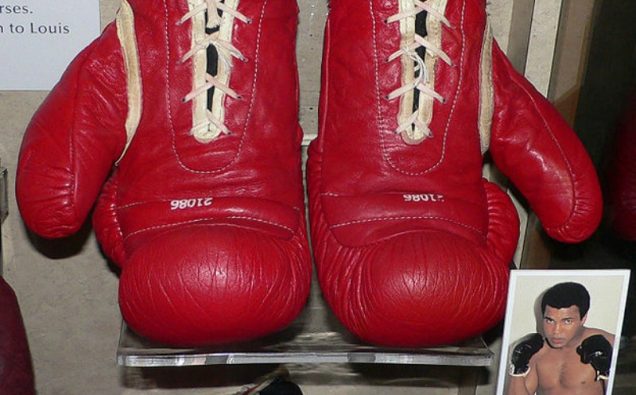
FEATURED IMAGE above shows a pair of Muhammad Ali’s boxing gloves, displayed at the National Museum of American History, Washington, DC. Photo Credit : Mark Pellegrini via Wikimedia Commons
Such was Muhammad Ali’s prowess as a fighter – skill, speed and stamina – that George Foreman, a tall muscular 25-year-old champion – had to bow out in the eighth round to give Ali an immortal victory.
It was the famous, now fabled, The Rumble in the Jungle fight. The year was 1974, when on October 29, two of the boxing world’s giants clashed in Kinshasa, Zaire.
Few people had the guts and the capacity to take the volley of punches that Ali showed that day to overpower Foreman in the ring that day.
But it was Ali in his peak form, both mentally and physically that carried the day.
Yet, the defeat at the hands of Ali did not stir up animosity in Foreman toward the victor but a lifelong friendship.
Ali had been doing things outside of the ring like speaking for equality, inclusiveness and morality of human beings when Americans grappled with the civil rights, race issues and the Vietnam war – a role that projected the champ as a man of conviction, moral courage and ambassador of love and affinity.
Who would not have loved the person who was accomplishing so much in the span of one life?
On Friday, when the champ was hospitalized in Phoenix, Arizona, Foreman spoke to his daughter.
The Washington Post carried a series of statements by Foreman on the passing of Ali, as revealed by KRIV Sports Director Mark Berman.
“It’s like a part of me just passed w/ him. It’s hard for me to think about being in a world without Muhammad Ali being alive,” Foreman said in one of the statements.
Here are two of the tweets that Foreman wrote on his account as tribute to one of the greatest figures of modern times.
“Ali, Frazier & Foreman we were 1 guy a part of me slipped away “the greatest piece” Muhammad Ali.”
“Until Ali no one said “I’m beautiful” he was royalty, yet common man was his pal. That is beauty. Greatest kind.”










